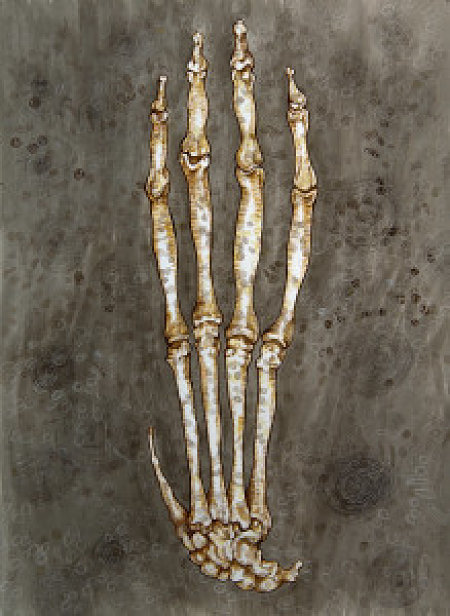
Two Eternities
He looked at the terrain ahead, remembering Jamison. Or more closely, allowing Jamison back into his thoughts. Imagining him, this time, as a rumpled old man in a tweed suit. A professor, like his parents, or perhaps a librarian. But in any case an academic. Someone who’d surrounded himself with books all his life and who, without realizing it, had adopted their dusty characteristics. His thin face would have taken on the stains and scuffs and dog-eared edges that come with age, just as Cassidy’s had done. Just as the faces of all the other students in that long-ago classroom had done. But Jamison’s smile—that ridiculous, ear-to-ear grin that both amused and infuriated people—would somehow, Cassidy thought, have remained the same.
The broken ridge lay ahead. He stomped to a halt in the drifting powder, knocked the ice from his snowshoes, and shrugged his shoulders to shift the weight of his backpack. The flakes had been falling steadily throughout the day, and when he glanced over his shoulder he saw that the long trail he’d left behind was slowly filling in, smoothly disappearing into the blue shadow of dusk. He considered this, the vanishing tracks, with a poet’s interest, and thought how Jamison, with his absurd love of metaphor, would have found some deep and profound meaning in it.
Cassidy still waxed philosophic, on occasion, about Jamison. But only to his wife, Katie. True, he spoke of other young men and women with whom he’d gone to school—pretending to be vaguely pleased that they’d drifted into obscurity, or fallen into lives and professions so hurried and chaotic they had neither the time nor the inclination to search him out—but when he spoke of Jamison, his voice assumed a different, almost apologetic tone. He’d once told Katie he wished he’d been a better friend to Jamison. But when she asked him if he’d ever thought of looking the fellow up, he quickly said, No, we were never that close.
*
At the lip of the broken ridge he looked down over the cold red granite into the glistening valley below. A blast of air shot across the rocks, nudging him off balance, and he turned away, shielding his face from the stinging snow. When he looked back again his eyes fell to the old ranger cabin, Jamison’s cabin, away in the distance, and his heart moved, rocklike, in his chest. The cabin was a quarter mile to the northwest—perhaps further, he couldn’t be certain—yet even from this distance he could see, faintly, that the front door was ajar, moving at the whim of the wind.
He cupped his gloves above his eyes and squinted, bringing the place into closer focus, and when the air gusted down into the valley again, roaring like a freight train, he watched the wooden door slam shut, then buck open, then slam shut again against the frame. Each time the door blew closed it did so silently, and each time it swung open the clap of wood announced itself after an incongruous delay, making it seem as if he were observing a motion picture whose images had slipped out of sync with its soundtrack.
The pack sat heavily upon Cassidy’s shoulders. But it was the journey, not the gear, that weighed on him. This was only the second time he’d been to the old ranger’s cabin, and the first had been so long ago he could barely trust his memory of it. Had he really come here with Jamison? It seemed unlikely. But then, everything about his acquaintance with Jamison seemed unlikely now, as if most of it had never even happened. Or as if he’d read about it in the loose pages of another man’s memoir.
